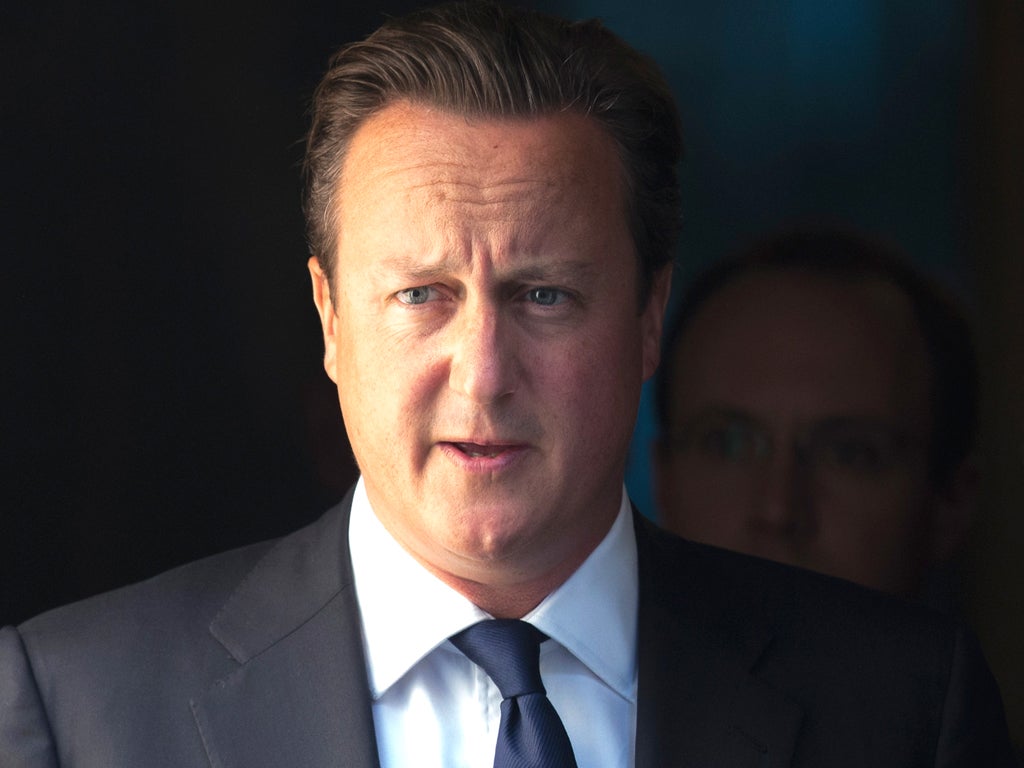Prime Minister's G20 snub: Barack Obama to hold private talks with Francois Hollande - but not David Cameron

David Cameron will not hold private talks with Barack Obama at this week’s G20 summit in St Petersburg after Parliament’s decision not to back US action in Syria, it emerged last night.
In contrast François Hollande, the French President, will hold talks on the fringes of the summit with Mr Obama, symbolising what some see as a weakening of the special relationship after last week’s Commons vote against military action.
The French President, who has vowed to join the US in punitive strikes against the Syrian regime, is one of three leaders due to have private talks with the US leader during the two-day summit that starts today.
Downing Street made clear that Mr Cameron did not ask the White House for a bilateral meeting, quashing any hint of a snub to the Prime Minister, who again firmly ruled out British military participation. The two leaders, who speak regularly, may still meet in the margins of the meetings.
Bilateral meetings with a US President are an important diplomatic event. In 2009, there was embarrassment when it was revealed that Gordon Brown’s officials made five attempts to secure talks with Mr Obama after a UN General Assembly meeting, eventually settling for a 15-minute chat walking through a kitchen.
White House officials say that in addition to his council of war with Mr Hollande, President Obama will only hold bilateral talks with China’s President Xi Jinping and Japan’s Prime Minister, Shinzo Abe.
Yesterday Mr Cameron said he would focus his efforts at the G20 on increasing international humanitarian aid to Syrians and working towards a diplomatic solution to the crisis. But during Prime Minister’s Questions he was unable to conceal his anger at Ed Miliband for his failure to back the Government in its motion.
He accused the Labour leader of “dividing” the House of Commons in its condemnation of the use of chemical weapons in Syria and said it had been unnecessary for Labour to undermine Britain’s public response to the Assad regime’s use of such weapons given that last week’s government motion did not authorise military action.
“Last week the Commons voted clearly and I have said I have respected the outcome out of that vote and I won’t be bringing back plans for British participation in military action,” Mr Cameron told MPs. “My only regret … is that I don’t think it was necessary to divide the House on a vote that could have led to a vote, but you took the decision that it was.”
The Prime Minister sacked a senior Tory backbencher as a government adviser yesterday after he abstained in the vote. Downing Street said it was “sad” to be losing Jesse Norman, a member of No 10’s policy board, which was set up this year to help formulate government policy.
But a spokesman said there had to be consequences for not voting with the Government. A Downing Street source said: “Jesse has done some very good work on the policy board but he couldn’t support the government on a three-line whip the other day, so he has left that position.”
Subscribe to Independent Premium to bookmark this article
Want to bookmark your favourite articles and stories to read or reference later? Start your Independent Premium subscription today.

Join our commenting forum
Join thought-provoking conversations, follow other Independent readers and see their replies